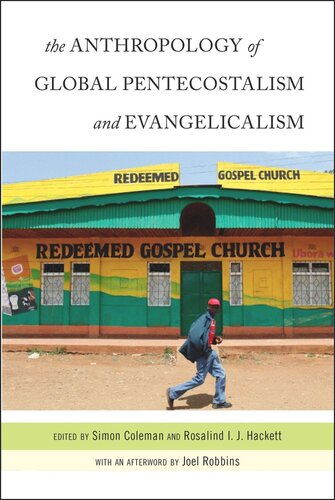

Most ebook files are in PDF format, so you can easily read them using various software such as Foxit Reader or directly on the Google Chrome browser.
Some ebook files are released by publishers in other formats such as .awz, .mobi, .epub, .fb2, etc. You may need to install specific software to read these formats on mobile/PC, such as Calibre.
Please read the tutorial at this link: https://ebookbell.com/faq
We offer FREE conversion to the popular formats you request; however, this may take some time. Therefore, right after payment, please email us, and we will try to provide the service as quickly as possible.
For some exceptional file formats or broken links (if any), please refrain from opening any disputes. Instead, email us first, and we will try to assist within a maximum of 6 hours.
EbookBell Team

4.1
80 reviewsThe phenomenal growth of Pentecostalism and evangelicalism around the world in recent decades has forced us to rethink what it means to be religious and what it means to be global. The success of these religious movements has revealed tensions and resonances between the public and the private, the religious and the cultural, and the local and the global. This volume provides a wide ranging and accessible, as well as ethnographically rich, perspective on what has become a truly global religious trend, one that is challenging conventional analytical categories within the social sciences.
This book informs students and seasoned scholars alike about the character of Pentecostalism and evangelicalism not only as they have spread across the globe, but also as they have become global movements. Adopting a broadly anthropological approach, the chapters synthesize the existing literature on Pentecostalism and evangelicalism even as they offer new analyses and critiques. They show how the study of Pentecostalism and evangelicalism provides a fresh way to approach classic anthropological themes; they contest the frequent characterization of these movements as conservative religious, social, and political forces; and they argue that Pentecostalism and evangelicalism are significant not least because they encourage us to reflect on the intersections of politics, materiality, morality and law. Ultimately, the volume leaves us with a clear sense of the cultural and social power, as well as the theoretical significance, of forms of Christianity that we can no longer afford to ignore.